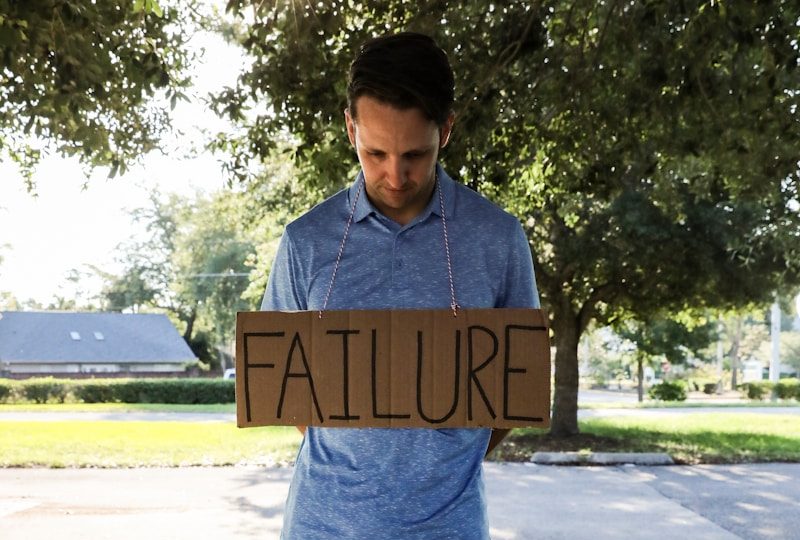I consider myself the greatest loser for two simple but profound reasons. First, I lose all the time, which means I’ve had plenty of practice at it. Second, and more importantly, every time I lose, I actually win because I learn something valuable from the experience.
Why Losing Makes You Stronger
Throughout my career—from my time as CEO at Leigh Steinberg Sports & Entertainment to my various entrepreneurial ventures—I’ve faced countless setbacks. Each one taught me something I couldn’t have learned any other way. Failure isn’t the opposite of success; it’s part of the journey toward success.
Too many people in business and life try desperately to avoid losing. They play it safe, stick to what they know, and miss opportunities for growth. I’ve taken the opposite approach. By being willing to lose—and lose often—I’ve opened myself up to experiences and lessons that have ultimately led to greater achievements.
View this post on Instagram
The Art of Losing Well
Becoming a great loser doesn’t happen overnight. It requires:
- Embracing vulnerability and being willing to take risks
- Developing resilience to bounce back from disappointments
- Cultivating curiosity about what went wrong and why
- Maintaining humility to learn from mistakes
When we approach losing with this mindset, we transform what could be devastating failures into stepping stones. The key is not avoiding loss but learning how to lose productively.
Learning Through Loss
My biggest professional setbacks have consistently led to my greatest breakthroughs. When I lost millions and hit rock bottom years ago, I gained clarity about what truly matters. That painful experience forced me to reevaluate my priorities and approach to business.
I’ve found that losses often reveal our blind spots and weaknesses. They show us where our thinking was flawed or where we need to develop new skills. Without these painful lessons, we remain stuck in comfortable patterns that limit our growth.
The most successful people I’ve worked with share this quality—they don’t fear losing. Instead, they extract value from every setback. They ask: “What can I learn here? How can this make me better?” This approach transforms losses from endings into beginnings.
Becoming a Great Loser
If you want to become a great loser too, start by changing your relationship with failure. Here’s how:
- Celebrate your losses as learning opportunities
- Share your failures openly to normalize the experience
- Analyze what went wrong without self-judgment
- Apply the lessons learned to future endeavors
- Help others reframe their own losses as growth opportunities
This shift in perspective doesn’t make losing painless, but it does make it purposeful. When we view losses as investments in our future success, they become easier to bear.
My challenge to you is simple: Be a great loser. Don’t run from failure or hide your mistakes. Instead, lose boldly, learn thoroughly, and grow consistently. The paradox is clear—those who are willing to lose often ultimately win the most.
In the end, our legacy isn’t built on an unbroken string of successes. It’s forged through our response to adversity, our willingness to fail forward, and our ability to transform losses into wisdom. I may be the greatest loser you’ll ever meet—and that’s precisely why I’ve succeeded.
Frequently Asked Questions
Q: How can I overcome the fear of failure that prevents me from taking risks?
Start by reframing how you think about failure. Instead of seeing it as a final judgment on your abilities, view it as data that helps you improve. Take small risks first to build your confidence, and remember that most successful people have numerous failures behind their achievements.
Q: What’s the difference between being a “good loser” and just accepting mediocrity?
Being a good loser doesn’t mean you’re comfortable with mediocrity or that you don’t strive for success. It means you extract maximum value from setbacks and use them to fuel future success. The key difference is learning and adaptation—mediocrity comes from repeating the same mistakes, while good losers evolve from theirs.
Q: How do you maintain confidence after experiencing multiple failures?
Confidence comes from knowing that failure is temporary and specific, not permanent and pervasive. I maintain confidence by separating my identity from my outcomes, celebrating the lessons learned, and focusing on continuous improvement rather than perfect results. Remember that each failure makes you more experienced and better equipped for future challenges.
Q: Can this “great loser” mindset be applied to personal relationships as well as business?
Absolutely. In relationships, being a great loser means handling rejection gracefully, learning from conflicts, and growing from heartbreak. The same principles apply—extract the lesson, adjust your approach, and move forward with new wisdom. This mindset builds emotional resilience and leads to healthier relationships over time.
Q: How do you know when to persist through failures versus when to change direction?
This requires honest self-assessment. Ask yourself: “Am I failing because I need more time and practice, or because this approach fundamentally doesn’t work?” Look for patterns in your failures. If you’re making new mistakes each time, you’re probably on the right track and should persist. If you’re repeating the same failures, it might be time to pivot to a new approach.







